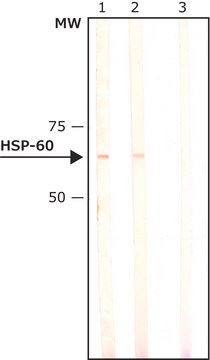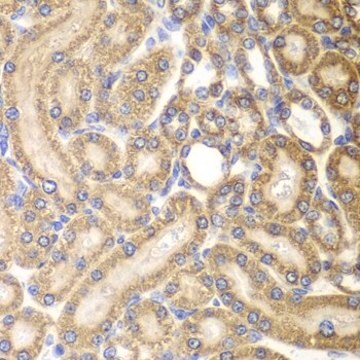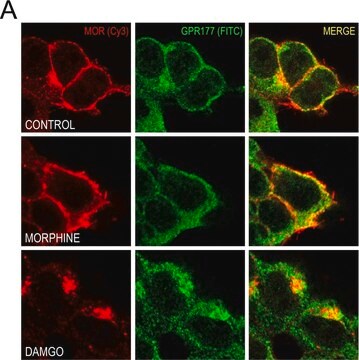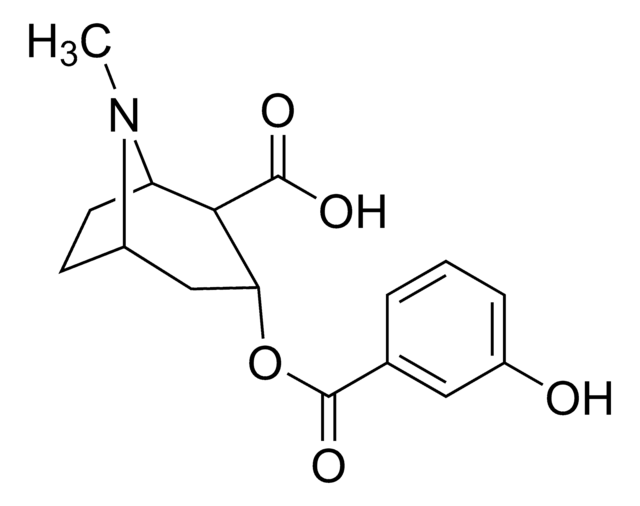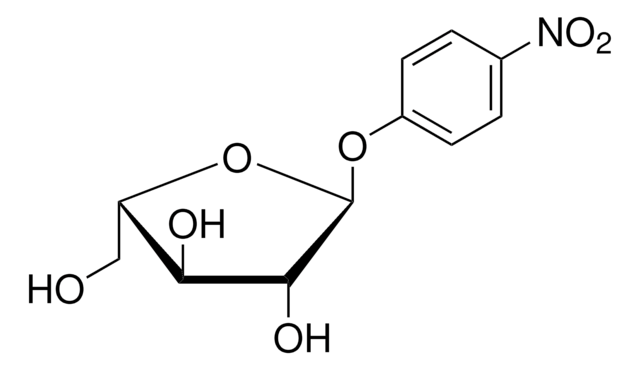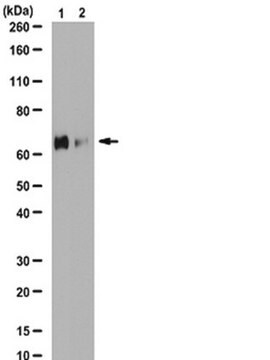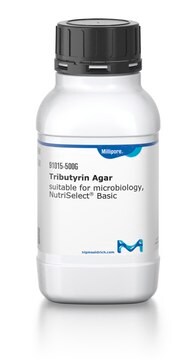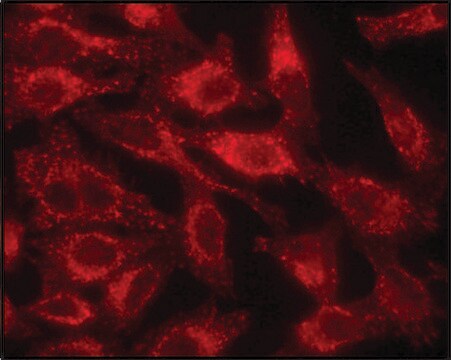H4149
Monoclonal Anti-Heat Shock Protein 60 antibody produced in mouse
clone LK1, ascites fluid
About This Item
Productos recomendados
origen biológico
mouse
Nivel de calidad
conjugado
unconjugated
forma del anticuerpo
ascites fluid
tipo de anticuerpo
primary antibodies
clon
LK1, monoclonal
mol peso
antigen 60 kDa
contiene
15 mM sodium azide
reactividad de especies
rat, human, chicken
técnicas
electron microscopy: suitable
immunohistochemistry (formalin-fixed, paraffin-embedded sections): suitable
indirect ELISA: suitable
western blot: 1:400 using cultured human foreskin fibroblast extract
isotipo
IgG1
Nº de acceso UniProt
Condiciones de envío
dry ice
temp. de almacenamiento
−20°C
modificación del objetivo postraduccional
unmodified
Información sobre el gen
human ... HSPD1(3329)
rat ... Hspd1(63868)
Descripción general
Especificidad
Inmunógeno
Aplicación
- Enzyme linked immunosorbent assay (ELISA)
- Immunoblotting
- Immunocytochemistry
- Immunohistochemistry
- Immunoelectron microscopy
- Double immunofluorescence
Acciones bioquímicas o fisiológicas
Forma física
Cláusula de descargo de responsabilidad
¿No encuentra el producto adecuado?
Pruebe nuestro Herramienta de selección de productos.
Opcional
Código de clase de almacenamiento
10 - Combustible liquids
Clase de riesgo para el agua (WGK)
nwg
Punto de inflamabilidad (°F)
Not applicable
Punto de inflamabilidad (°C)
Not applicable
Elija entre una de las versiones más recientes:
¿Ya tiene este producto?
Encuentre la documentación para los productos que ha comprado recientemente en la Biblioteca de documentos.
Nuestro equipo de científicos tiene experiencia en todas las áreas de investigación: Ciencias de la vida, Ciencia de los materiales, Síntesis química, Cromatografía, Analítica y muchas otras.
Póngase en contacto con el Servicio técnico